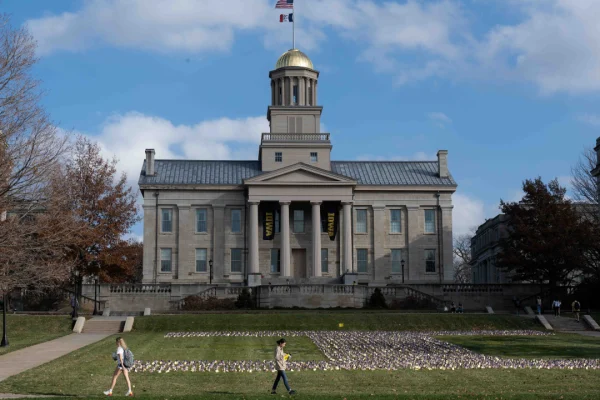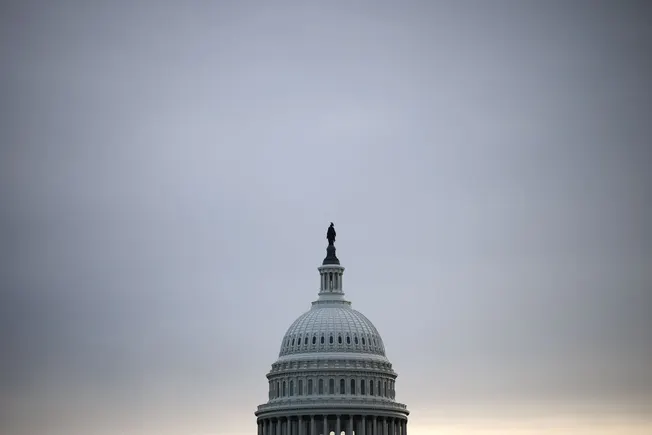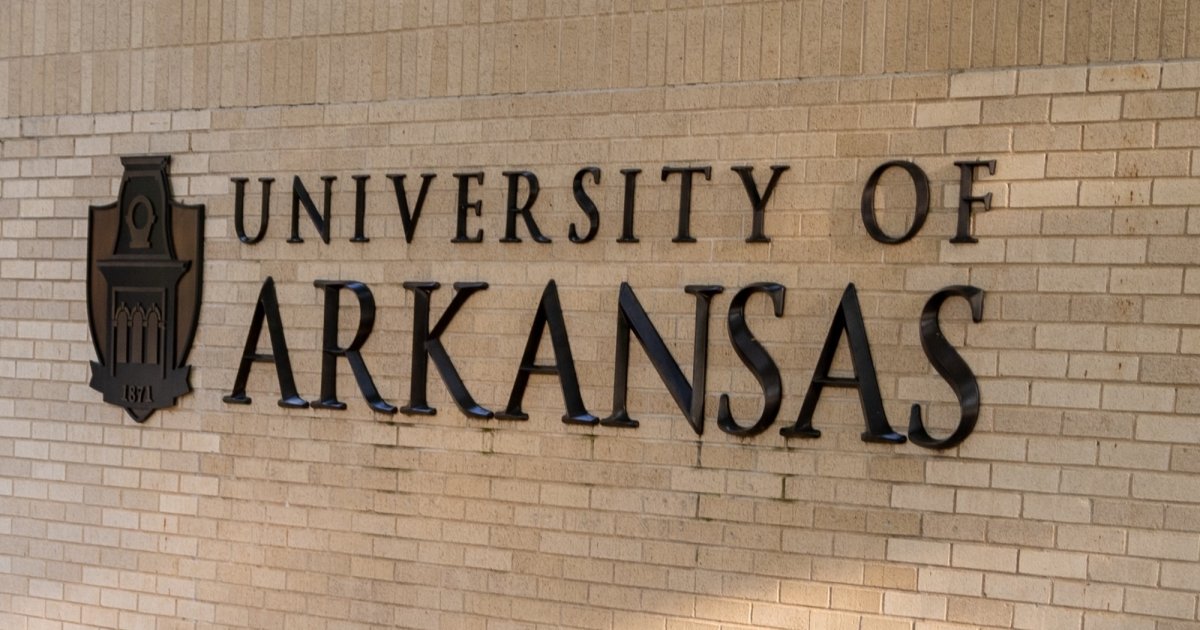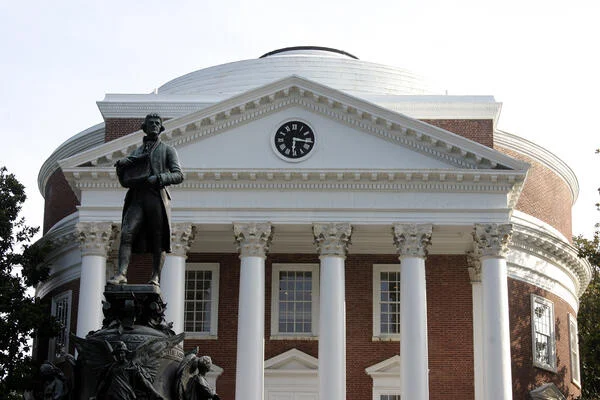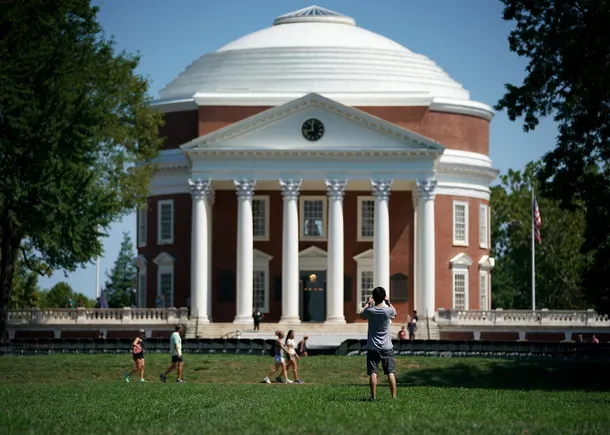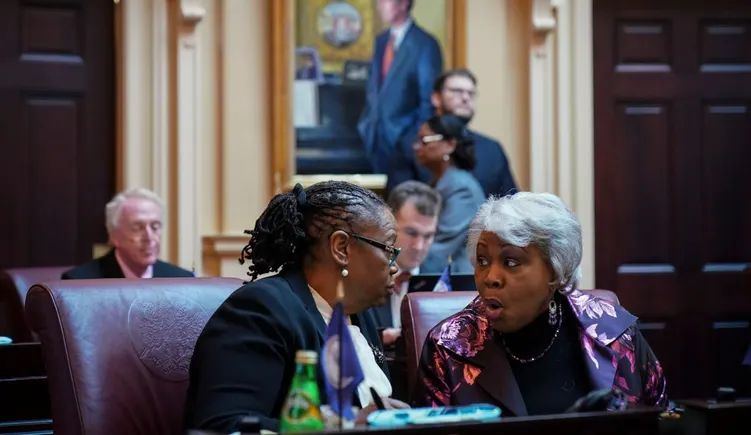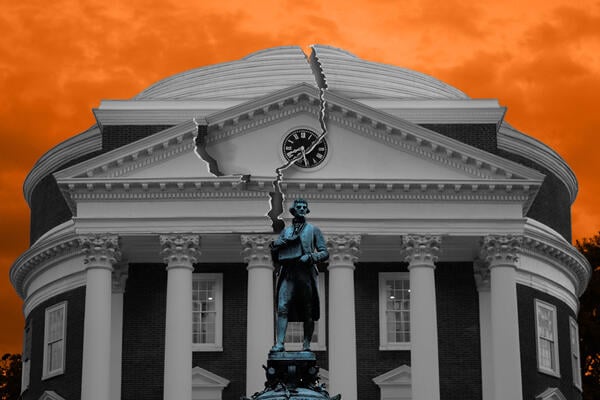Months after Jim Ryan stepped down as University of Virginia president, state Sen. Creigh Deeds is still waiting for answers on whether political interference and external pressure played a role.
Ryan resigned in late June, citing pressure from the federal government amid Department of Justice investigations into diversity, equity and inclusion initiatives at the public university. Although the Board of Visitors voted to shutter its DEI office in March, conservative critics accused UVA of failing to dismantle such efforts. The DOJ subsequently launched seven investigations, two of which have been closed. The status of the other five remains unclear.
Deeds, a Democrat who represents Charlottesville and the surrounding area, has been seeking answers since Aug. 1 through a series of letters sent to the Board of Visitors and a far-reaching Freedom of Information Act request. But so far, university lawyers have largely refused to answer the state lawmaker’s questions, citing ongoing investigations. Faculty members have also said they can’t get straight answers from the university or face time with the board.
And complaints over an alleged lack of transparency at UVA are piling up as state lawmakers are applying additional pressure over how the university will respond to an invitation to sign on to the proposed “Compact for Academic Excellence in Higher Education” that the Trump administration sent to UVA and eight other universities last week.
Trading Letters
In office since 2001, Deeds has a long relationship with the university. But for the first time in 20-plus years, the senator said, he’s being shut out by a Board of Visitors that refuses to talk to him.
“We’re just trying to get to the bottom of what role the federal government, the Justice Department, the president’s office, the governor, the [state] attorney general played in the decision that Jim Ryan made to resign,” Deeds told Inside Higher Ed in an interview.
Deeds has sent several inquiries to UVA since Ryan resigned. The first letter included 46 questions related to Ryan’s resignation, the DOJ investigations and whether the UVA Board of Visitors “operated within the bounds of its legal and ethical responsibilities.”
But so far, Deeds says, he’s been given “partial answers” and “gobbledygook.”
In a series of letters to Deeds from two law firms (Debevoise & Plimpton and McGuireWoods), the outside legal counsel offered little insights into Ryan’s resignation, arguing in an Aug. 15 response that UVA is “is currently focused on navigating an unprecedented set of challenges,” which includes the ongoing DOJ investigations.
Some information included in the responses is already in the public sphere, such as how the board voted to shutter DEI initiatives, and details on the presidential search committee, which Deeds had also asked about. UVA also included letters sent by the DOJ to the university when it closed two investigations; while the DOJ referenced “appropriate remedial action” by the university, it did not offer specifics. But the focus across several letters sent to Deeds by university lawyers was mostly on why UVA can’t respond.
“Counsel handling the discussions with the Department of Justice has indicated that providing a substantive response to the August 1 letter while negotiations are ongoing would be inconsistent with the need for confidentiality. Counsel has therefore requested that the Board refrain from doing so until a resolution with the Department of Justice is finalized,” wrote David A. O’Neil, an attorney with Debevoise & Plimpton.
UVA lawyers also repeatedly took issue with Deeds’s characterization of the events surrounding Ryan’s resignation.
In an Aug. 29 response, O’Neil wrote that the board “would like to correct a number of inaccurate premises and assumptions in your letter” but was “duty-bound to place the University’s interests above all else” and honor its “fiduciary obligation to the University.” However, UVA legal counsel did not specify what, if anything, was inaccurate.
O’Neil also asked the senator not to “draw conclusions or promote unfounded speculation.”
Deeds responded in a Sept. 4 letter that he was “surprised and concerned” that the Board of Visitors “felt the need to secure outside counsel to respond to a legislative request.” He added that he was equally troubled by the failure to fully answer any questions.
Frustrated by UVA’s response, Deeds filed a FOIA request Sept. 18, seeking a trove of documents related to Ryan’s resignation and the DOJ investigations. UVA has not yet fulfilled the FOIA request but did send Deeds a $4,500 bill to process the information, which he plans to pay.
Deeds then followed up in a Sept. 29 letter, pressing the university on what it agreed to in exchange for the DOJ closing two investigations and for more details on where the other five currently stand.
To date, Deeds is still seeking answers.
UVA spokesperson Brian Coy told Inside Higher Ed by email that the university has offered “as much information as possible at the time” in its multiple responses to Deeds. However, he said, the university is constrained by “active discussions with the Department of Justice regarding several investigations, and publicly disclosing information that relates to those investigations could hamper our ability to resolve them in a way that protects the institution from legal or financial harm.” He added that UVA is processing Deeds’s FOIA request in accordance with state law.
Coy did not address several specific questions sent by Inside Higher Ed asking about potential political interference, remedial action for closed investigations or the status of the active DOJ investigations.
Mounting Pressure
Deeds isn’t the only one struggling to get answers from UVA’s Board of Visitors.
Jeri Seidman, UVA Faculty Senate chair, said the board has declined to answer faculty questions about Ryan’s resignation and DOJ investigations. She added that the board has been less responsive since the Faculty Senate voted no confidence in the Board of Visitors in July.
“We have not had interactions with the rector or the vice rector since July 11,” Seidman said, adding that the board had declined an invitation to address the Faculty Senate last month.
Seidman credited UVA interim president Paul Mahoney with being accessible, though, she noted, he and other leaders have also declined to answer faculty questions due to DOJ investigations.
“We appreciate his willingness to come and answer questions. Those questions are never gentle. But it’s disappointing that the rector has not acknowledged any [faculty] resolutions or requests for information, even if the response were simply to say that now is not the right time,” Seidman said.
Recent Faculty Senate resolutions include demands for an explanation on Ryan’s resignation, the no-confidence vote and calls for UVA leadership and the board to reject the proposed “Compact for Academic Excellence in Higher Education.” The compact would require changes in admissions and hiring and a commitment to institutional neutrality, while simultaneously suppressing criticism of conservatives, among other demands. In exchange, the administration says signatories would receive preferential treatment from the federal government on research funding, though the document also threatens the institution’s funding if it doesn’t sign or comply.
Virginia Democrats have also opposed the compact and threatened to restrict funding to the university if it signs on. That threat comes as lawmakers are ratcheting up pressure on UVA and waging a legal battle to block Republican governor Glenn Youngkin’s board appointments.
The letter, sent Tuesday by Senate majority leader Scott Surovell, expressed “grave concern” over the compact and referenced Ryan’s resignation, which, he wrote, was “forced” by the DOJ via alleged “extortionate tactics—threatening hundreds of millions of dollars in federal funding and the livelihoods of employees, researchers, and students unless he stepped down.”
Surovell warned that “the General Assembly will not stand by while the University surrenders its independence through this compact” and that there would be “significant consequences in future Virginia budget cycles” for UVA should the Board of Visitors agree to the arrangement.
Surovell’s warning shot comes amid a broader dispute over who can serve on Virginia boards. While a Senate committee has blocked a recent slate of gubernatorial appointments, including at UVA, Youngkin has insisted that members can still serve until they are rejected by the full Legislature. A related legal case will be heard by the Virginia Supreme Court later this month.
Board leadership and Mahoney replied to Surovell’s letter Wednesday with a noncommittal reply shared with Inside Higher Ed that did not indicate whether the university intended to sign on to the proposed compact or not. They wrote in part that UVA’s “response will be guided by the same principles of academic freedom and free inquiry that Thomas Jefferson placed at the center of the University’s mission more than 200 years ago, and to which the University has remained faithful ever since.”

